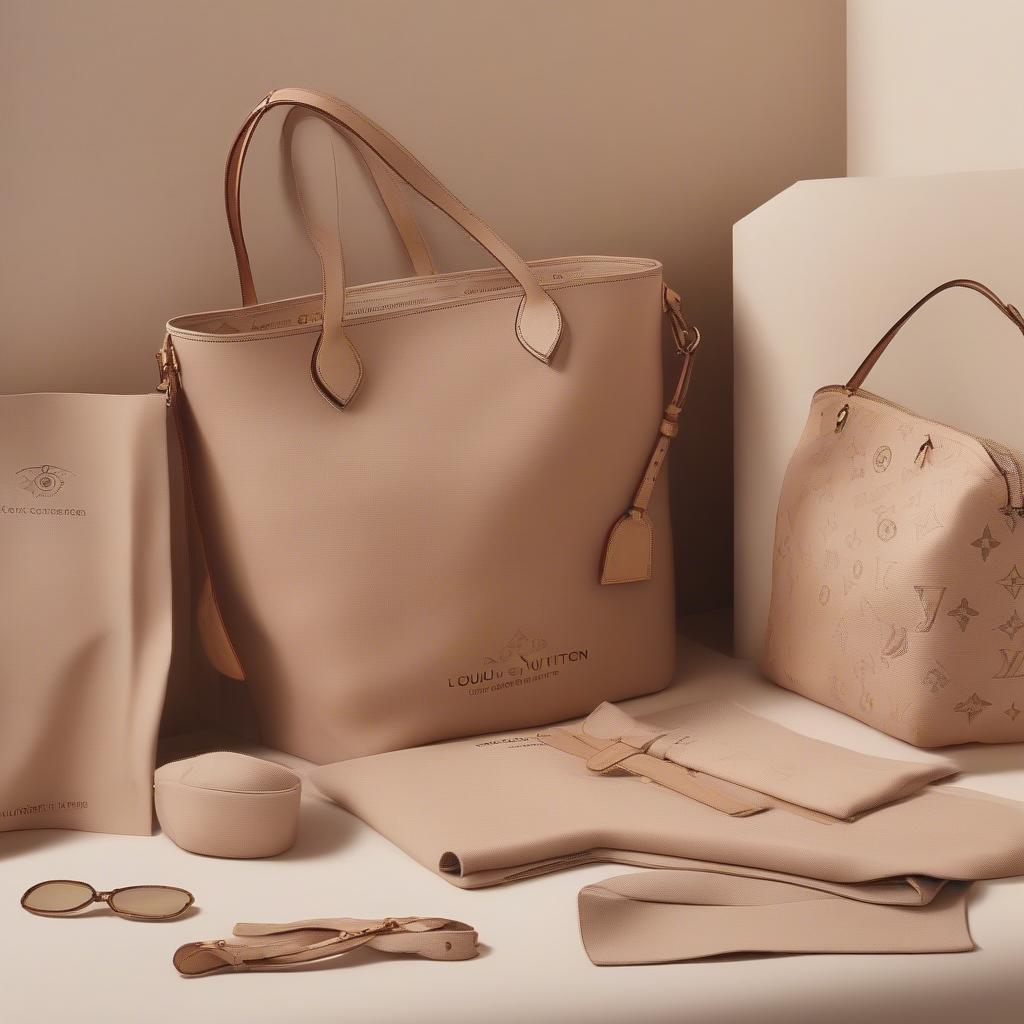Louis Vuitton, a name synonymous with luxury and prestige, consistently navigates the ever-evolving global landscape. A key element of their continued success lies in their adept application of PESTEL analysis. This framework allows them to understand and adapt to Political, Economic, Social, Technological, Environmental, and Legal factors impacting their business. So, how does Louis Vuitton leverage PESTEL analysis to drive sustainable growth? Let’s delve into the specifics.
Table Content:
- Political Factors: Navigating the Global Stage
- Economic Factors: Balancing Luxury and Affordability
- Social Factors: Adapting to Changing Consumer Preferences
- Technological Factors: Embracing Innovation
- Environmental Factors: Committing to Sustainability
- Legal Factors: Ensuring Compliance and Ethical Practices
- FAQs
- Conclusion
Political Factors: Navigating the Global Stage
How do political landscapes affect luxury brands like Louis Vuitton? Political stability, trade agreements, and international relations significantly influence the brand’s operations. For instance, favorable trade agreements can facilitate smoother import and export processes, while political instability in a key market can disrupt supply chains and impact sales. Louis Vuitton carefully monitors these political nuances to mitigate risks and capitalize on opportunities. This proactive approach enables them to maintain a strong global presence.
Economic Factors: Balancing Luxury and Affordability
What economic factors influence luxury spending? Economic growth, inflation, and exchange rates play a crucial role in shaping consumer behavior and purchasing power, especially within the luxury market. During economic downturns, Louis Vuitton may adjust its pricing strategies or focus on core product lines to maintain sales. Conversely, in periods of economic prosperity, they might introduce new, high-end products or expand into new markets. This dynamic approach allows them to cater to fluctuating economic conditions.
Social Factors: Adapting to Changing Consumer Preferences
How do societal trends influence Louis Vuitton’s strategies? Changing consumer preferences, cultural shifts, and social values influence the demand for luxury goods. Louis Vuitton keeps a keen eye on evolving trends, such as the growing interest in sustainable and ethical fashion. They have responded by incorporating sustainable materials and practices into their production processes, appealing to a more conscious consumer base. This adaptability allows them to stay relevant and appealing to a diverse and evolving customer base.
 Louis Vuitton's Use of Sustainable Materials
Louis Vuitton's Use of Sustainable Materials
Technological Factors: Embracing Innovation
How is technology reshaping the luxury experience? Technological advancements are transforming the retail landscape, impacting everything from production to marketing. Louis Vuitton embraces technology by utilizing advanced manufacturing techniques, personalized online shopping experiences, and digital marketing strategies to connect with their customers. They have also integrated augmented reality and virtual reality into their retail experience, enhancing customer engagement and offering immersive brand experiences. This forward-thinking approach allows them to stay ahead of the curve.
Environmental Factors: Committing to Sustainability
What is Louis Vuitton’s stance on environmental responsibility? Growing environmental concerns are pushing businesses to adopt more sustainable practices. Louis Vuitton acknowledges its environmental footprint and is actively pursuing sustainability initiatives. These efforts include reducing carbon emissions, using eco-friendly packaging, and promoting circular economy principles. This commitment resonates with environmentally conscious consumers and enhances brand reputation.
 Louis Vuitton's Circular Economy Initiatives
Louis Vuitton's Circular Economy Initiatives
Legal Factors: Ensuring Compliance and Ethical Practices
How does Louis Vuitton navigate the legal complexities of the global market? Intellectual property rights, consumer protection laws, and labor regulations are just some of the legal factors that impact the luxury industry. Louis Vuitton rigorously protects its trademarks and designs, ensuring the authenticity of its products. They also adhere to labor laws and ethical sourcing practices, fostering a positive brand image and building trust with consumers. This commitment to legal and ethical compliance minimizes risks and builds a strong foundation for sustainable growth.
FAQs
- How does PESTEL analysis benefit Louis Vuitton? PESTEL provides a comprehensive framework for understanding the external factors influencing the luxury market, enabling strategic decision-making and proactive adaptation.
- What is Louis Vuitton’s approach to sustainability? Louis Vuitton is committed to reducing its environmental impact through various initiatives, including using sustainable materials, minimizing waste, and promoting circularity.
- How does technology influence Louis Vuitton’s strategy? Louis Vuitton leverages technology to enhance the customer experience, optimize its operations, and engage with its audience through innovative digital marketing strategies.
- What are the key political factors impacting Louis Vuitton? Trade agreements, political stability in key markets, and international relations play a significant role in shaping Louis Vuitton’s global operations.
- How does Louis Vuitton adapt to changing consumer preferences? By closely monitoring social trends and cultural shifts, Louis Vuitton adapts its product offerings, marketing campaigns, and business practices to resonate with evolving consumer values.
- What are some examples of Louis Vuitton’s ethical practices? Louis Vuitton prioritizes ethical sourcing, adheres to labor laws, and actively combats counterfeiting, demonstrating its commitment to responsible business practices.
- How does Louis Vuitton manage economic fluctuations? Through flexible pricing strategies, product portfolio adjustments, and strategic market expansion, Louis Vuitton navigates economic uncertainties and maintains its market position.
Conclusion
Louis Vuitton’s strategic application of PESTEL analysis is instrumental to its ongoing success in the dynamic luxury market. By understanding and proactively responding to political, economic, social, technological, environmental, and legal factors, Louis Vuitton not only maintains its position as a leading luxury brand but also ensures its sustainable growth for years to come. Consider the impact of PESTEL on your own business and how a deeper understanding can help you navigate today’s complex marketplace.


